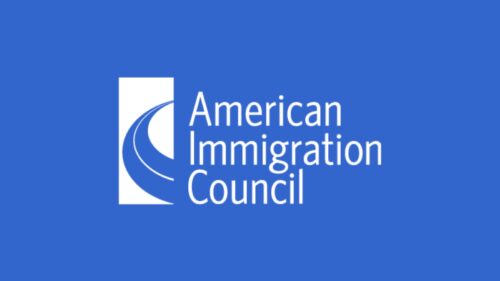Washington D.C. – More than two years into the Obama Administration, it is still unclear whether President Obama’s immigration agenda will ultimately be remembered as an enforcement-driven enterprise, or one that uses the full force of executive branch authority to improve our badly broken system. On the one hand, the President continues to voice support for comprehensive immigration reform that would create a new immigration system that is more fair, just, and practical than the unworkable system now in place. On the other hand, the Administration repeatedly trumpets the fact that it is deporting more people with greater efficiency than its predecessors. When confronted by this apparent contradiction, Administration officials claim that, in the absence of Congressional action, their hands are tied and they must simply enforce the dysfunctional laws that are now on the books. This response ignores the important and completely legitimate role that the Executive branch of government has always played in interpreting and implementing existing laws.
It is time for the Administration to more clearly define a vision for what its legacy on immigration will be, then take action to ensure that vision is reflected in its interpretation and implementation of immigration law. Without bold and decisive action, President Obama’s legacy on immigration will come to be defined by a do-nothing Congress with a chronic inability to pass legislative reform.
As a former teacher of constitutional law, and as the signatory of nearly 80 Executive Orders, President Obama understands that the role of the Executive branch of the U.S. government has never been limited to blindly enforcing laws passed by the Legislative branch. In fact, the effective implementation of any law (criminal law, tax law, environmental law, securities law, etc.), requires the Executive branch to interpret that law and develop strategies to implement it. Every new administration brings its own set of values and priorities to this task. That is why federal regulations, policies, and procedures change from administration to administration.
This fundamental fact has been repeatedly recognized by the Obama Administration outside of the immigration context. Speaking in 2008, President Obama’s transition chief, John Podesta, noted: “There’s a lot that the President can do using his executive authority without waiting for congressional action, and I think we’ll see the president do that.” Speaking in 2010, White House communications director Dan Pfeiffer observed: “The challenges we had to address in 2009 ensured that the center of action would be in Congress. In 2010, executive actions will also play a key role in advancing the agenda.”
In February of this year, the Administration flexed this kind of Executive muscle when it determined that the controversial Defense of Marriage Act (DOMA) is unconstitutional, and the President directed the Department of Justice to no longer defend the law in court. In light of statements—and actions—such as these, the argument that the Administrations’ hands are tied when it comes to immigration rings hollow. President Obama can and should infuse the implementation of immigration law with the same values and priorities that define his legislative agenda.
An important way in which the Administration could put its imprint upon U.S. immigration law is by implementing a well-balanced policy on the exercise of prosecutorial discretion. The authority to exercise discretion in deciding when to prosecute and when not to prosecute has long been recognized as a critical part of American law. Since 2000, the former Immigration and Naturalization Service (INS) and its successor agencies within the Department of Homeland Security (DHS) have issued more than a dozen guidance memoranda that address prosecutorial discretion. This represents an acknowledgement of the fact that the exercise of prosecutorial discretion is integral to the implementation of immigration law and to the management of scarce institutional resources. It is therefore absurd for the Obama Administration to suggest that Congressional inaction is robbing it of a power it already possesses.
President Obama must make a choice. He can use the executive power at his disposal to begin implementing our immigration laws in a more just and humane manner, or he can continue ramping up deportations as he waits endlessly for Congress to pass immigration reform. Advocates of immigration reform hope that the President will be proactive and stop waiting for Congress to act first. That is why a growing number of organizations are calling upon the Administration to shake off its timidity and defend its legitimate right to use discretion and fairness in the enforcement of immigration law. The American Immigration Council agrees and calls on the Administration to lead decisively and immediately on immigration.
Tomorrow, the American Immigration Council will release its second annual DHS Progress Report, which identifies more fully the opportunities and challenges available to the Obama Administration while the nation waits for Congress to act on comprehensive immigration reform.
###
For press inquiries contact Wendy Sefsaf at [email protected] or 202-507-7524

